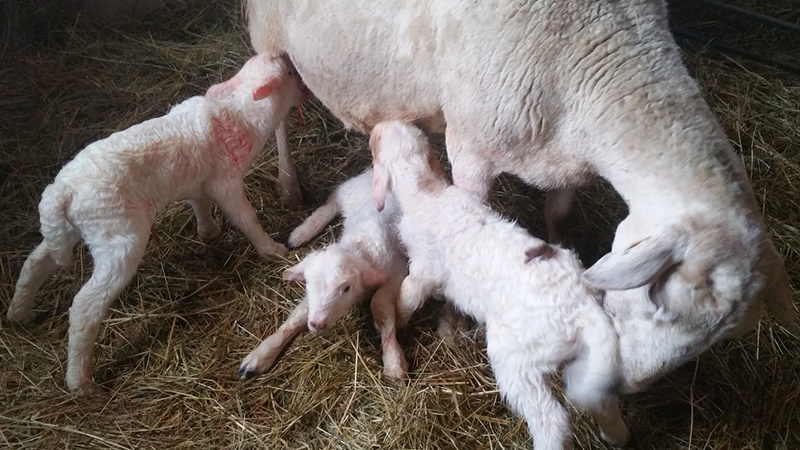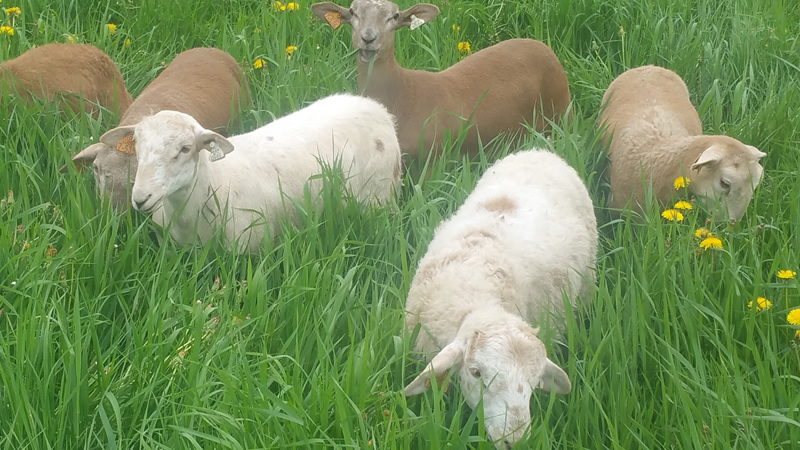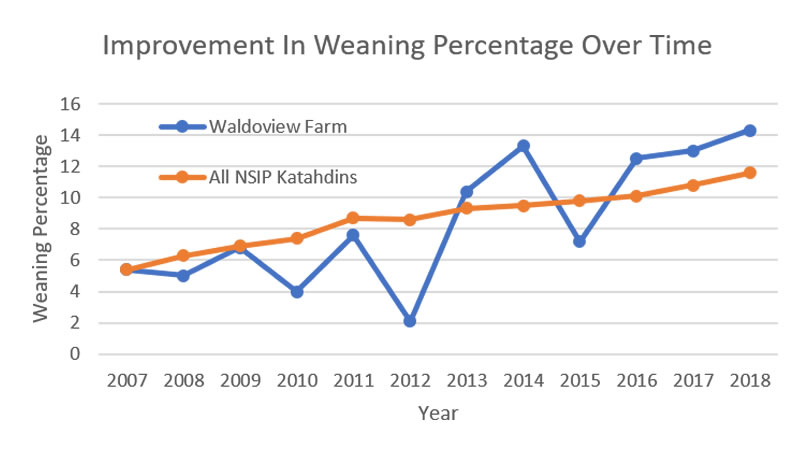Our Philosophy
We share the common goal of creating functional sheep that require minimal input, are capable of resisting internal parasites, and do these under an array of environmental and management approaches. Our aim is to provide superior seed-stock to farms looking to raise lambs profitably on pasture. We hope that our combined experience and shared vision can enhance, in some small way, local food production in New England serving farmers, their families, and the communities in which they live.
Functional Sheep

We breed Katahdins that require minimal care. We believe strongly that whether you are a commercial producer with 175 ewes or a hobbyist with just five, you have a lot of demands on your time. For us, easy births of vigorous lambs are most important in accomplishing that. We bet you feel this way too. We expect each of our ewes over 1 year of age to deliver at least twin lambs unassisted and that those lambs grow rapidly reaching market weight of 90 to 110 lbs in 7 to 9 months. Functional ewes shed their winter coat easily each spring, need their hooves trimmed at most once per year, and importantly, do not require deworming……ever.
Parasite Resistance

There are few things that are more detrimental to profitability in raising sheep on pasture than a heavy parasite burden in your lambs. We have long used parasite resistance as a criterion for improving the quality of our sheep, and over time, virtually eliminating the need for chemical dewormers and the labor and expense to administer them. Believing that the bulk of the problem lies within a small number of ewes, we’ve used both FAMACHA anemia checks and fecal egg counts to identify and remove problem animals. We’ve also used these techniques to identify the most genetically resistant ewe lambs and retained them as replacements for poor perfomers.
Productive on Forage

Just as it takes a solid foundation to build a solid house, profitably raising grass-fed lamb needs to start with a solid genetic foundation. For us, animals selected for generations based on their performance on pasture forms that foundation. We have consistently raised mild-flavored, fast-growing lambs on pasture for many years. Our combined decades of experience raising and grazing sheep have been guided by careful and detailed record keeping. Our efforts at flock improvement have been focused on that goal through identifying and consistently retaining hard-working functional ewes and breeding them to some of the best rams in the country. We’ve traveled far and wide to acquire Katahdin rams, and more than a few ewes, that we believe support our drive to build the strongest ewe flocks on grass anywhere in the northeast.
Science-Based Selection

Guiding our philosophy, as described above, is an underpinning of science. We do not base our selection solely on visual appearance as is common in show flocks. For over a decade, we’ve used one of the latest technologies in livestock breeding, quantitative genetics, to populate our flocks with sheep that possess the traits necessary to accomplish our common goal. As is common in today’s professional athletes, where individual skills are statistically monitored, we track several economically important traits with a similar statistical approach. Unlike in other livestock species, we have not focused solely on individual traits such as weaning weight or postweaning growth. Instead, we’ve sought to improve multiple traits in a more balanced approach, and by doing so, created sheep that are especially well-suited to low input production.
